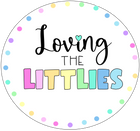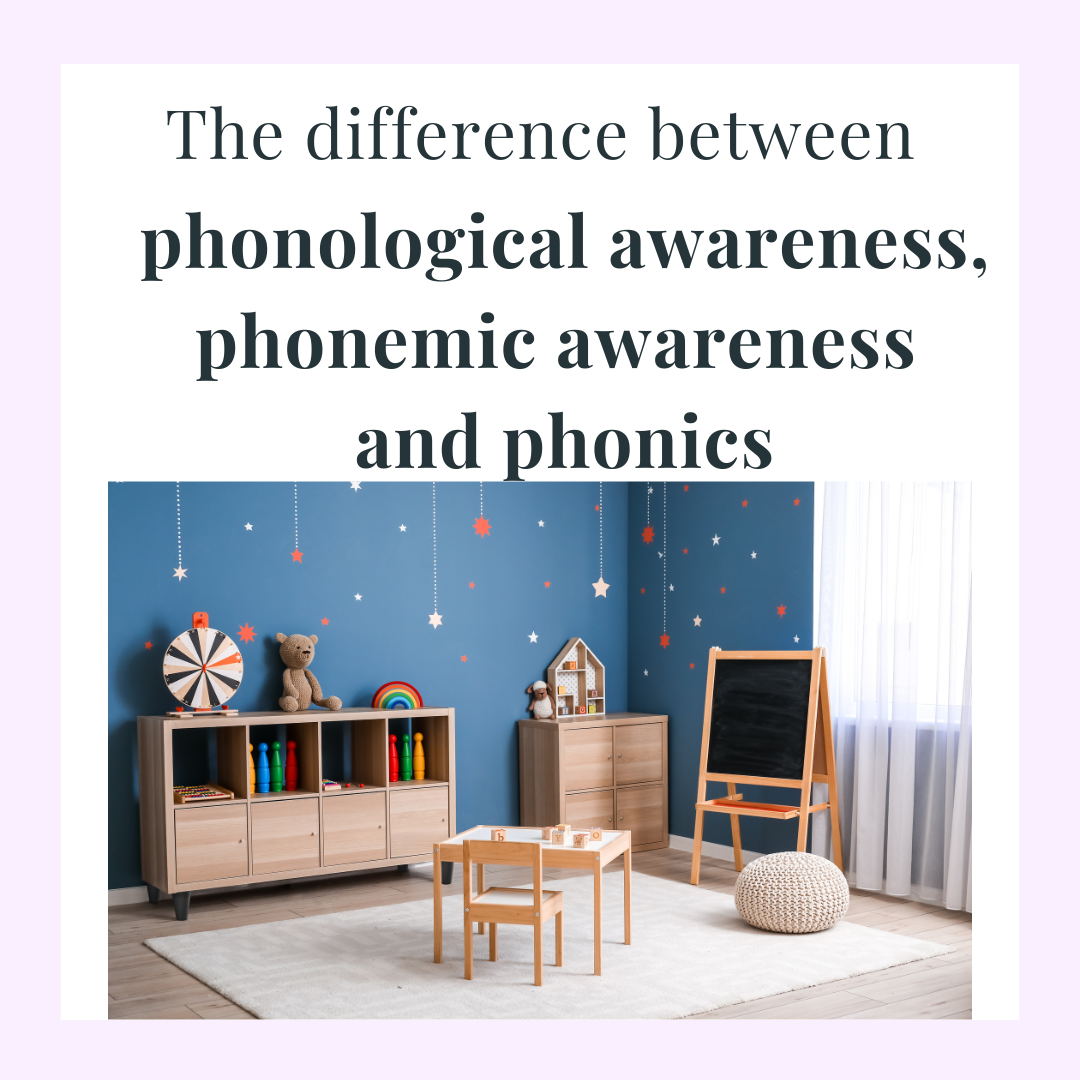Ever found yourself confused by these terms? They're certainly a mouthful when you say them all together.
I'm pretty sure that in the past, before I really understood what they meant, I used these terms interchangeably and incorrectly.
In this blog post, we're going dive into these three crucial literacy skills that are fundamental for our young learners and what they actually mean: phonological awareness, phonemic awareness, and phonics.
Phonological awareness
First off, phonological awareness is all about grasping how spoken words are made up of individual sound parts.
Phonological awareness is like an umbrella term: multiple skills (including phonemic awareness) come under the umbrella term of phonological awareness.

A child with strong phonological skills knows that:
- fish and dish rhyme
- I went to school is a sentence with four words
- Five floating fish is alliteration - they all begin with /f/
- Elephant has three syllables
- In the word bat, b is the onset, at is the rime
- In the word splash, spl is the onset and ash is the rime
- leg has three phonemes: /l/ /e/ /g/
Phonemic awareness
Next, we have phonemic awareness, which zooms in on individual sounds, or phonemes, within words. It's like knowing that the word "sun" is made up of three sounds: /s/ /u/ /n/. We help students develop this skill by having them practise things like blending sounds together to make words and breaking words into their separate sounds.
A child with strong phonemic awareness skills knows that:
-ship has three phonemes: /sh/ /i/ /p/
- /b/ i/ /g/ blended together is big
- man without the /m/ is an
- if you add /f/ to lie you get fly
-if you change /sh/ to /ch/ in ship you get chip
Phonics
Lastly, phonics is the connection between sounds and letters. It's about understanding that each letter represents a sound and how those sounds come together to form words. For example, "B" makes the /b/ sound, and "A" can say its name as in "ape." By teaching phonics, we give students the tools they need to decode words while reading and spell words while writing.

Learn more about phonics here.
These three skills are absolutely essential for beginning readers because they lay the groundwork for reading and writing success.
When we focus on building phonological awareness, phonemic awareness, and phonics skills in our classrooms, we're setting our students up for a lifetime of literacy achievement.
So, let's keep it simple, keep it focused, and watch our little learners flourish as they embark on their literacy journey!


